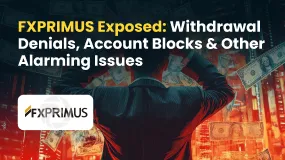简体中文
繁體中文
English
Pусский
日本語
ภาษาไทย
Tiếng Việt
Bahasa Indonesia
Español
हिन्दी
Filippiiniläinen
Français
Deutsch
Português
Türkçe
한국어
العربية
Another ‘Tan Sri’ Targeted, RM347 Million in Assets Seized in MBI Scam
Abstract:Malaysia’s police are stepping up their investigation into the MBI investment scam, a multi-billion ringgit fraud that has dragged on for nearly a decade. The Royal Malaysian Police (PDRM) is now planning to arrest another prominent figure with the title ‘Tan Sri’, following recent arrests and major asset seizures.

Malaysia‘s police are stepping up their investigation into the MBI investment scam, a multi-billion ringgit fraud that has dragged on for nearly a decade. The Royal Malaysian Police (PDRM) is now planning to arrest another prominent figure with the title ’Tan Sri, following recent arrests and major asset seizures.
From 18 to 21 April 2025, five people were taken into custody, including one ‘Tan Sri’ and a “Datuk Seri”. They are being held for five to six days to assist with the investigation. According to police sources, another ‘Tan Sri’ is currently overseas and is known in the property development industry. He is expected to be arrested soon.
The police believe that one of the arrested ‘Tan Sris’ acted as a middleman between the scam organisers and their victims. Another ‘Tan Sri’, who was previously arrested, is accused of tricking one of the suspects into paying money to avoid being caught. He is not thought to be directly involved in the scam itself.

During the latest round of enforcement, police seized RM347 million in assets. This included durian plantations in Pahang, Penang and Kedah worth over RM223 million. They also froze 299 bank accounts holding more than RM123 million. These assets are believed to have been bought with money made through the scam.
Earlier in April, police arrested eight Malaysians (seven men and one woman), who were also linked to the MBI scheme. At that time, the authorities froze RM3.17 billion worth of assets. These included over 600 bank and share trading accounts with RM1.16 billion, and 35 properties worth RM2.01 billion.
These arrests followed a series of cross-border raids in March, part of an operation called “Op Northern Star”. The raids were launched under an Interpol Red Notice. They revealed deeper links between the MBI scheme and some well-known business figures. Investigators found documents showing connections to property and share deals involving listed companies.
Some of the documents seized were linked to the RM10 billion Penang World City project in Bayan Mutiara. This development was once tied to Hemat Tuah Sdn Bhd, a company connected to MBI founder Tedy Teows family. Authorities also found links to investments in listed firms such as Mayu Global Group Bhd and HHRG Bhd. Both companies have since changed management and are no longer connected to MBI.
The MBI case appeared to be nearing its end last year when Teow was extradited to China. But the latest moves by the police show that many people and companies may still be involved. Despite only six police reports being filed across the country, the investigation has continued for over seven years.

Disclaimer:
The views in this article only represent the author's personal views, and do not constitute investment advice on this platform. This platform does not guarantee the accuracy, completeness and timeliness of the information in the article, and will not be liable for any loss caused by the use of or reliance on the information in the article.
Read more

Investing in Coinexx? Think Again Before Your Account Balance Hits ZERO
Coinexx has emerged as a nightmare for traders who once saw potential and profit in its platform. The problems lie in its lack of transparency, which has left many investors with a ZERO balance. Scamming investors by employing fraudulent tactics and introducing bogus trading rules is increasingly becoming its status symbol. The endless negative reviews of this scam broker are trending on various platforms. To expose the troubling investor experiences, we’ve compiled sharp complaints from verified users of Coinexx. Read on!

UnityFXLive: How This Broker Scammed Over $350,000 ? Know the Red Flags
On August 4, 2025 Indian police arrested two men for running a fake forex trading scam under the name UnityFXLive.com. The suspects were caught operating from a rented office in Goregaon, Mumbai. During questioning, they revealed the name of a third person who is believed to be the mastermind behind the scam. He is currently on the run. The scammers promised people high returns on forex investments, but instead of doing real trading, they stole the money using fake online platforms.

FXPRIMUS Exposed: Withdrawal Denials, Account Blocks & Other Alarming Issues
Have your fund withdrawal applications been constantly denied by FXPRIMUS? Does the forex broker inappropriately block your trading account? Are your deposits disappearing without reaching your trading account? There’s something seriously wrong with this forex broker, whose track record keeps getting worse by the day. Many traders have expressed their anguish on several broker review platforms. While reading those reviews, we could not resist exposing this broker. Check out how traders have criticized FXPRIMUS for its illicit acts.

FXPRIMUS Exposed: Withdrawal Denials, Account Blocks & Other Alarming Issues
Have your fund withdrawal applications been constantly denied by FXPRIMUS? Does the forex broker inappropriately block your trading account? Are your deposits disappearing without reaching your trading account? There’s something seriously wrong with this forex broker, whose track record keeps getting worse by the day. Many traders have expressed their anguish on several broker review platforms. While reading those reviews, we could not resist exposing this broker. Check out how traders have criticized FXPRIMUS for its illicit acts.
WikiFX Broker
Latest News
Forex Swaps Explained in 5 Minutes – Everything You Need to Know
Binance Users Convert Crypto and Withdraw Instantly to Mastercard
One Click on Facebook Cost a 77-Year-Old Over RM100,000
What WikiFX Found When It Looked Into TradeFW
Should You Trust DeltaStock? Key Warning Signs to Consider
Interactive Brokers Launches TipRanks Analytics, Forecast Contracts in Europe
UnityFXLive: How This Broker Scammed Over $350,000 ? Know the Red Flags
Best MT4 Brokers in the USA in 2025
FXPRIMUS Exposed: Withdrawal Denials, Account Blocks & Other Alarming Issues
Best MetaTrader Forex Brokers in the Philippines 2025
Currency Calculator


